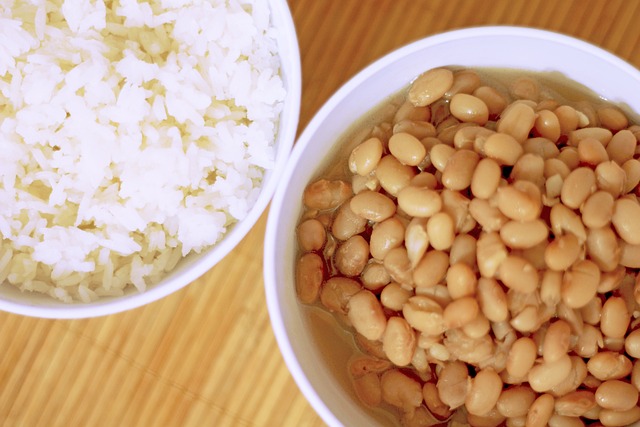When it comes to promoting optimal digestion and nourishing the body, Ayurveda, the ancient Indian system of medicine, offers valuable insights into the art of food combinations. The principle of combining specific foods together is believed to support efficient digestion, enhance nutrient absorption, and promote overall well-being.
Ayurveda emphasizes the importance of harmonious food combinations that complement each other in terms of taste, digestion time, and energetics. By understanding which foods to combine, you can create meals that are nutritionally balanced, easy to digest, and provide a wide range of essential nutrients.
Here are some of the recommended food combinations in Ayurveda and the reasons behind their synergy for optimal digestion and nourishment. By incorporating these principles into our meals, you can experience the benefits of improved digestion, increased energy levels, and overall vitality.
Vegetables and Grains
Combining vegetables with grains is considered harmonious in Ayurveda. Vegetables provide essential vitamins, minerals, and dietary fiber, while grains offer carbohydrates and additional nutrients. When consumed together, they create a balanced meal that supports digestion and provides a wide range of nutrients. For example, you can pair steamed vegetables like broccoli, carrots, or leafy greens with whole grains like quinoa, brown rice, or millet. This combination ensures a good balance of macronutrients and promotes satiety.
Legumes and Grains
Combining legumes, such as lentils, chickpeas, or black beans, with grains creates a complementary amino acid profile, making it a nutritionally complete meal. Legumes are excellent sources of plant-based proteins, while grains provide complex carbohydrates and additional nutrients. Together, they offer a well-rounded combination of essential amino acids necessary for optimal protein synthesis. For example, you can enjoy a lentil curry with brown rice or a chickpea stew with quinoa.
Fruits
Ayurveda generally recommends consuming fruits separately from other foods. However, there are exceptions for certain fruits that can be combined with specific foods. Sweet, ripe fruits like bananas or dates can be combined with nuts or seeds to create a balanced snack or a quick energy boost. The natural sweetness of fruits pairs well with the healthy fats and protein in nuts or seeds, providing a satisfying and nourishing combination. For instance, you can have a banana with a handful of almonds or blend dates with cashews to make a delicious energy ball.
Spices and Foods
Ayurvedic cuisine incorporates a wide range of spices known for their medicinal properties. Adding spices like ginger, turmeric, cumin, fennel, or coriander to meals can enhance digestion, improve nutrient absorption, and add flavor. These spices are known to stimulate Agni (digestive fire) and promote optimal digestion. For example, adding ginger to a lentil soup or turmeric to roasted vegetables can aid digestion and provide additional health benefits due to their anti-inflammatory and antioxidant properties.
Mindful Pairings
Apart from specific food combinations, Ayurveda encourages mindful pairings based on taste and energetic qualities. In Ayurveda, there are six tastes: sweet, sour, salty, bitter, pungent, and astringent. A balanced meal should ideally contain a combination of these tastes to satisfy the palate and support digestion. For instance, combining sweet potatoes (sweet taste) with leafy greens (bitter taste) and adding a sprinkle of lemon juice (sour taste) creates a well-rounded meal that balances the tastes and aids digestion.
By understanding the principles of food combining in Ayurveda, you can create meals that are nutritionally balanced, easy to digest, and support overall well-being. Experiment with different combinations of vegetables, grains, legumes, fruits, and spices to find what works best for your body and suits your taste preferences. It is also essential to consider seasonal and local produce, as Ayurveda emphasizes the importance of eating fresh, seasonal foods for optimal health.
Image by Daniel Dan outsideclick from Pixabay
Ayurveda
-

What are the Six Tastes in Ayurveda?
Ayurveda, the ancient Indian system of medicine, views food as medicine and emphasizes the importance of nourishing the body with a balanced diet. Central to Ayurvedic nutrition is the concept of the six tastes, each with its unique properties and effects on the body and mind. According to Ayurveda, including all six tastes in our…







Leave a Reply